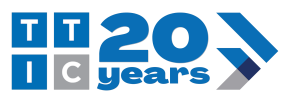TTIC maintains a state-of-the-art computing infrastructure to support a variety of research, educational, and administrative needs, supervised by the Director of IT.
Network
TTIC uses the University of Chicago networking environment for both wired and wireless connectivity as well as internet access.
All computational resources allow remote access via ssh or VPN.
File Systems
A shared file system available to the members of the Institute include backed-up home directories and project spaces, as well as non-backed up, but resilient file servers where space can be allocated to research groups as needed.
Faculty/research groups can obtain additional space by purchasing dedicated file servers, which are integrated into the existing file systems.
The file systems are maintained by TTIC at no cost to the faculty (beyond the initial purchase for the private/dedicated file servers).
Compute Cluster
We have a cluster that includes CPU nodes (about 440 cores) and GPU nodes, about 170 Nvidia GPUs, ranging from RTX 2080 Ti to RTX 6000, set up mostly in 4- and 8-GPU nodes. The cluster is used via a scheduler system (slurm).
The cluster is continuously growing, with hardware contributed both by TTIC and by Institute faculty (who receive upgraded priority in recognition of their contributions).
Detailed information about the cluster is available at https://slurm.ttic.edu.
The cluster is hosted in the data center, maintained by the University of Chicago, located in the basement of the building, at no cost to the faculty (beyond the initial purchase of the contributed compute nodes).
Individual and Group Resources
In addition to the shared cluster, research groups can set up private or semi-private computing servers. These can be standalone or set up as private nodes on the slurm cluster, facilitating consistent workflow and making temporary resource reallocation and sharing easy.
Research groups can also purchase private file servers that can be added to the file system and mounted on Institute machines (including the cluster).
Private nodes and servers can be integrated into the IT system and maintained by TTIC, or remain separate and be maintained by the group.
Incoming first year students receive a budget for one-time purchase of computing equipment, in consultation with their interim advisors. It can be used to buy a laptop (the most popular choice), tablets, peripherals like monitors, or a desktop/workstation. Budget amounts are detailed in admission offer letters.

